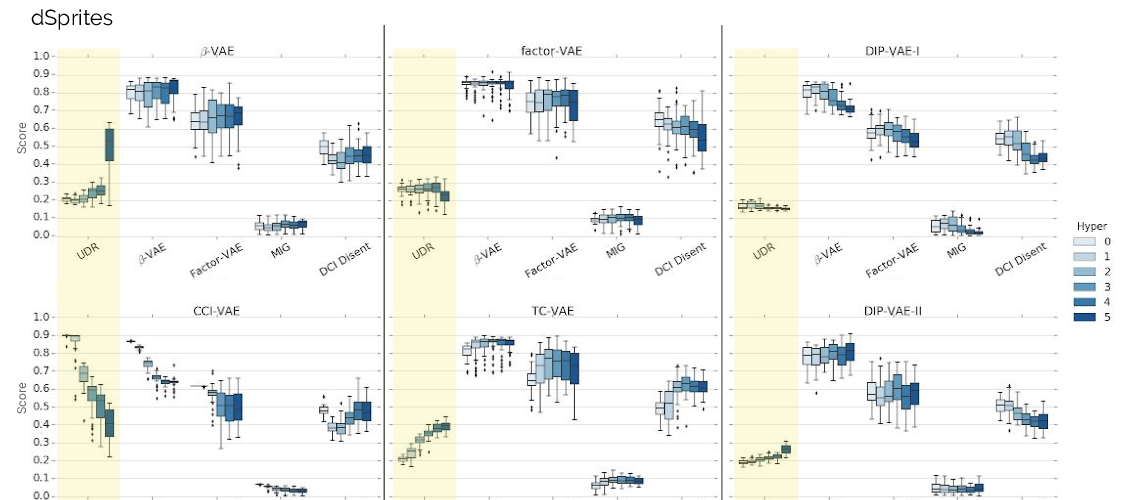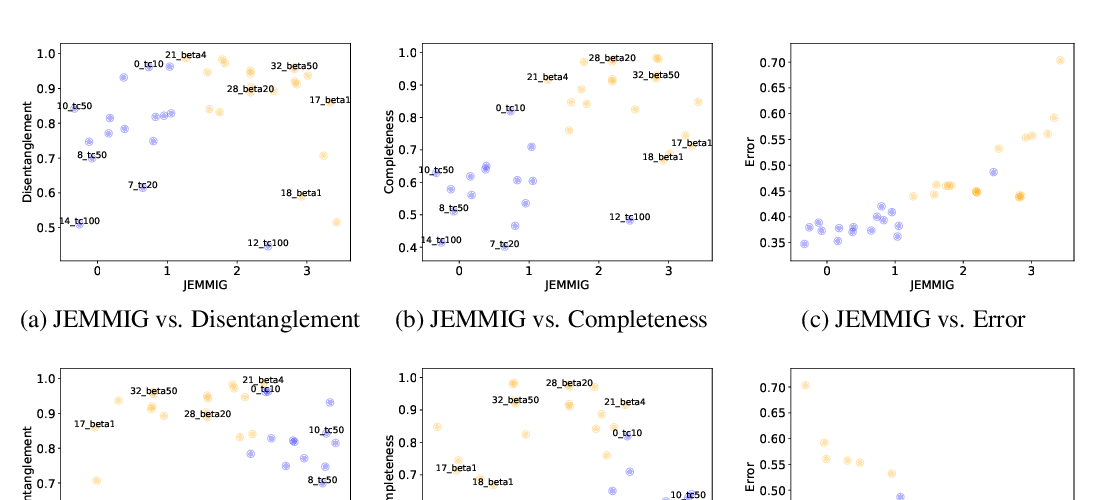Abstract:
Learning disentangled representations is considered a cornerstone problem in representation learning. Recently, Locatello et al. (2019) demonstrated that unsupervised disentanglement learning without inductive biases is theoretically impossible and that existing inductive biases and unsupervised methods do not allow to consistently learn disentangled representations. However, in many practical settings, one might have access to a limited amount of supervision, for example through manual labeling of (some) factors of variation in a few training examples. In this paper, we investigate the impact of such supervision on state-of-the-art disentanglement methods and perform a large scale study, training over 52000 models under well-defined and reproducible experimental conditions. We observe that a small number of labeled examples (0.01--0.5% of the data set), with potentially imprecise and incomplete labels, is sufficient to perform model selection on state-of-the-art unsupervised models. Further, we investigate the benefit of incorporating supervision into the training process. Overall, we empirically validate that with little and imprecise supervision it is possible to reliably learn disentangled representations.


